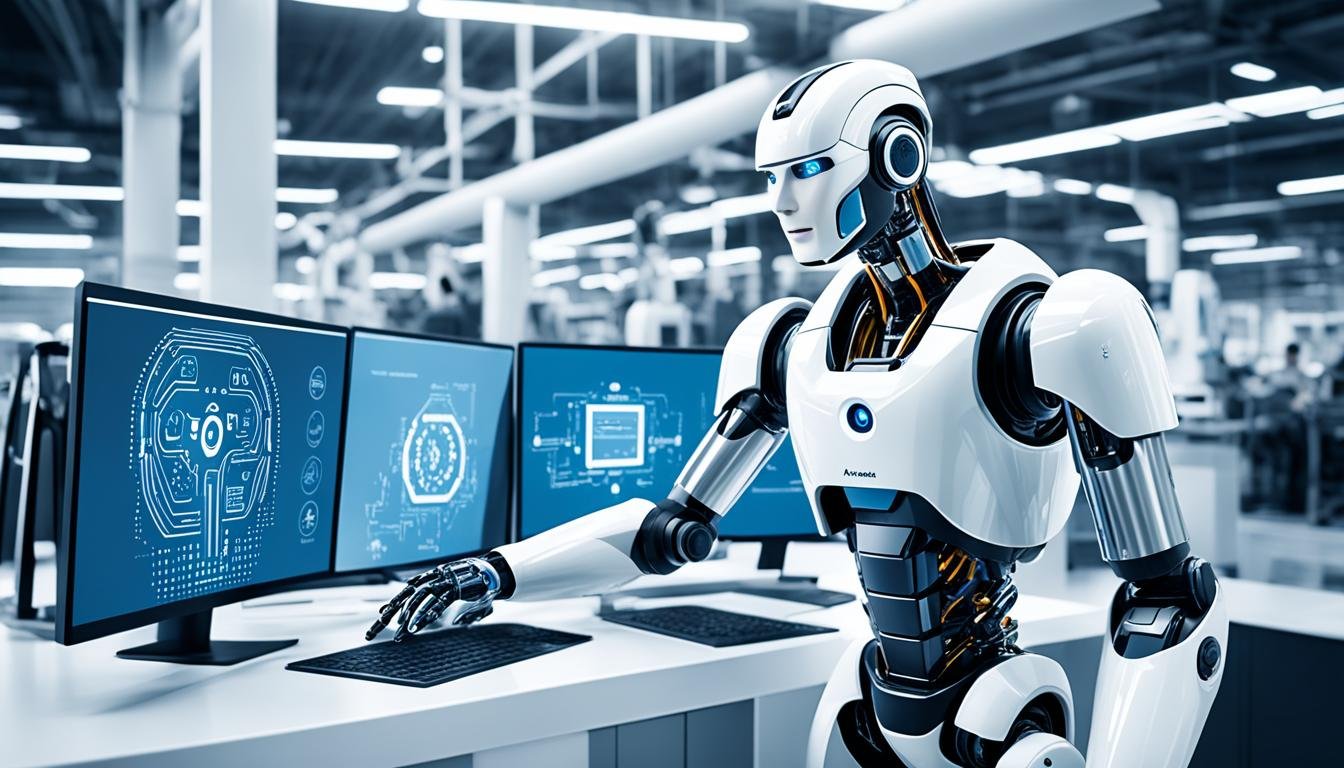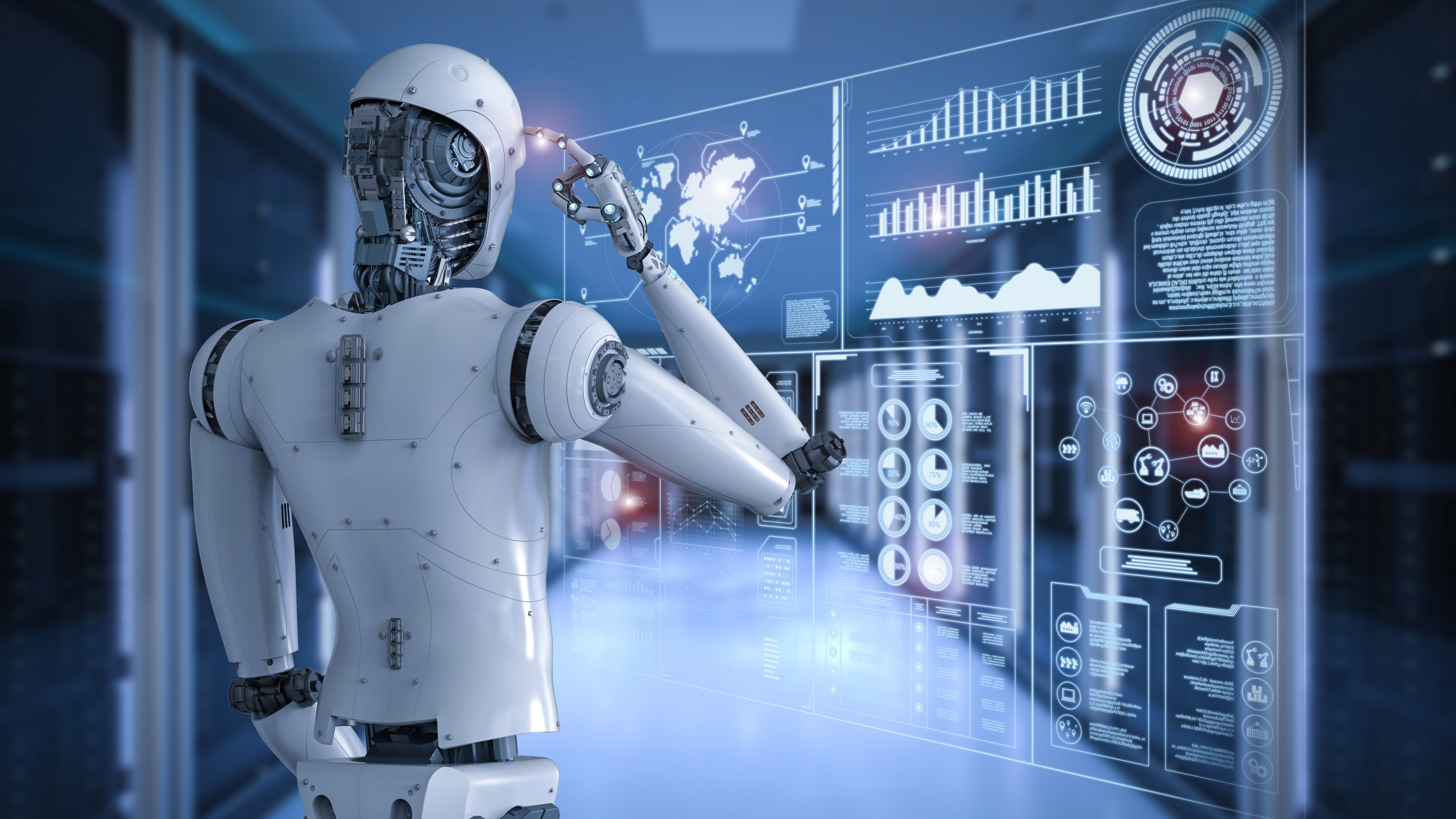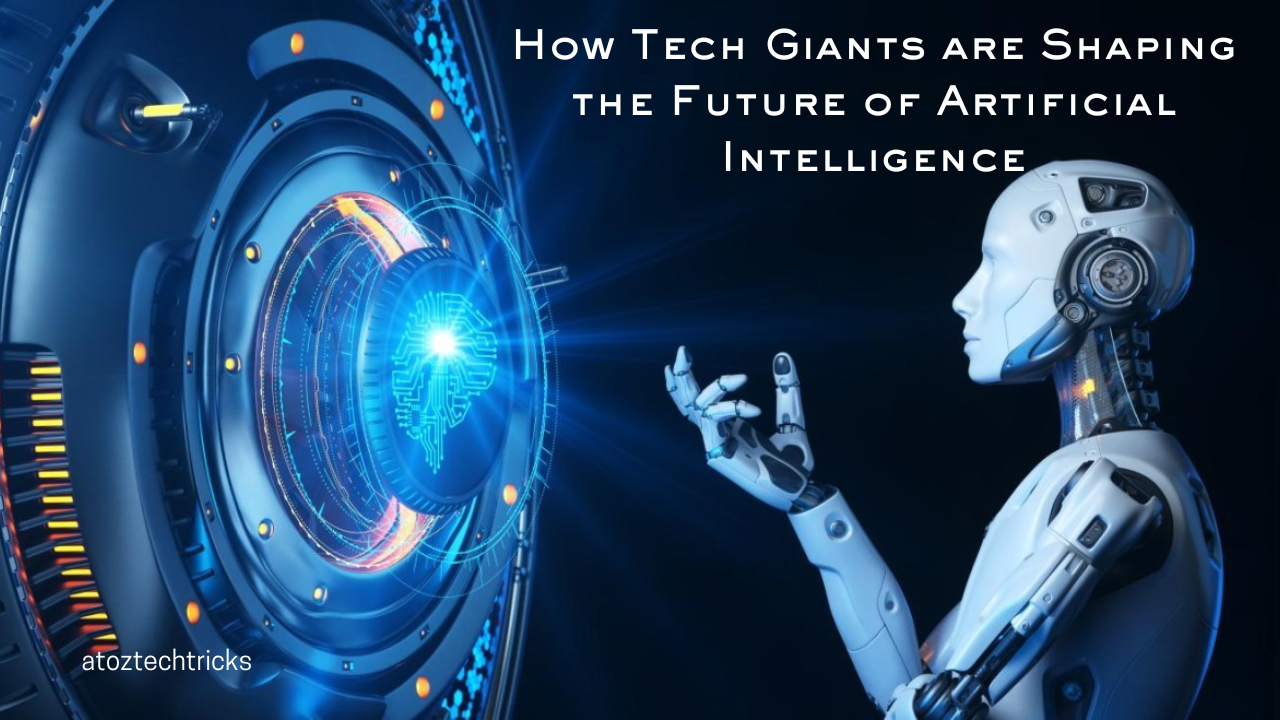Artificial Intelligence (AI) has rapidly become one of the most transformative technologies of the 21st century, revolutionizing industries, economies, and societies. At the forefront of this revolution are the tech giants—companies like Google, Microsoft, Apple, Amazon, and Facebook—whose investments, innovations, and strategic visions are driving the development and deployment of AI on a global scale. This article explores how these tech giants are shaping the future of AI, the implications of their dominance, and what the future may hold for this powerful technology.
The Role of Tech Giants in AI Development
Google: Pioneering AI Research and Development
Google, through its parent company Alphabet, has been a leader in AI research and development. With the acquisition of DeepMind in 2014, Google gained access to some of the brightest minds in AI. DeepMind’s breakthrough in creating AlphaGo, an AI program that defeated the world champion in the game of Go, was a significant milestone that showcased the potential of AI.
Google has also been instrumental in developing AI frameworks and tools that have become industry standards. TensorFlow, an open-source machine learning library developed by Google, is widely used by researchers and developers to build AI models. Google’s AI capabilities are integrated across its products and services, from search algorithms to personalized recommendations on YouTube, to the Google Assistant that powers smart home devices.
Google’s focus on AI is not just about technological innovation but also about creating an AI-first world. Google CEO Sundar Pichai has repeatedly emphasized that AI will have a more profound impact on humanity than electricity or fire. Google is investing heavily in AI to improve healthcare, create sustainable solutions, and enhance user experiences across its ecosystem.

Microsoft: Democratizing AI
Microsoft’s approach to AI is centred around making the technology accessible to everyone. The company’s AI platform, Azure AI, provides a comprehensive suite of AI services that enable businesses of all sizes to integrate AI into their operations. Azure AI offers pre-built models, tools for custom model development, and powerful computing resources, making it easier for organizations to leverage AI without needing extensive expertise.
Microsoft’s commitment to AI is also evident in its partnerships with various organizations to tackle global challenges. For instance, Microsoft’s AI for Good initiative focuses on using AI to address issues such as climate change, healthcare, and accessibility. The company is also working to ensure that AI is developed and used ethically. Through its AI Ethics in Engineering and Research (AETHER) Committee, Microsoft is addressing the ethical implications of AI and promoting transparency and fairness in AI systems.
In addition to Azure AI, Microsoft has integrated AI into its core products like Office 365, Dynamics 365, and LinkedIn. AI-driven features such as predictive text in Word, customer insights in Dynamics, and personalized job recommendations on LinkedIn are just a few examples of how Microsoft is enhancing productivity and user experiences through AI.
Exploring the Potential of Virtual Reality (VR) in Education
Apple: Bringing AI to the Masses
Apple’s influence on the AI landscape is unique in that it focuses on creating AI that is seamlessly integrated into consumer products. Apple’s AI strategy revolves around enhancing user experience through features that are intuitive, privacy-focused, and embedded into its ecosystem of devices.
Siri, Apple’s voice assistant, was one of the first AI-powered virtual assistants to be widely adopted by consumers. Over the years, Apple has continued to improve Siri’s capabilities, leveraging natural language processing and machine learning to provide more accurate and contextually relevant responses.
Apple’s emphasis on on-device AI processing is a key differentiator in its AI strategy. By performing AI tasks on the device rather than relying on cloud-based processing, Apple enhances user privacy and reduces latency. This approach is evident in features like Face ID, which uses machine learning to recognize users’ faces, and the Neural Engine in Apple’s custom silicon, which powers advanced AI tasks across Apple devices.
Apple is also using AI to improve health and wellness through its products. The Apple Watch, for example, uses AI to monitor heart rate, detect irregularities, and even provide alerts for potential health issues. By focusing on user-centric AI applications, Apple is making AI more accessible and beneficial to everyday consumers.
Amazon: AI-Driven Commerce and Beyond
Amazon has been a pioneer in using AI to transform e-commerce and logistics. The company’s recommendation algorithms, powered by AI, have significantly improved the shopping experience by providing personalized product suggestions based on users’ browsing and purchasing behaviour. These algorithms are a crucial driver of Amazon’s sales and customer retention.
Amazon’s AI capabilities extend far beyond e-commerce. Amazon Web Services (AWS) offers a comprehensive suite of AI and machine learning services, making it one of the largest providers of cloud-based AI solutions. AWS AI services, such as Amazon SageMaker, enable businesses to build, train, and deploy machine learning models at scale.
Moreover, Amazon is revolutionizing supply chain management with AI-powered robotics and automation. In its fulfilment centres, robots powered by AI work alongside human employees to optimize order processing and reduce delivery times. Amazon’s investments in AI-driven logistics are also paving the way for innovations like drone delivery, which could transform the future of package delivery.

Amazon’s Alexa, a voice-controlled virtual assistant, is another example of how the company is bringing AI into consumers’ homes. Alexa’s ability to control smart home devices, provide information, and facilitate shopping has made it a central hub for the smart home ecosystem. By continuously improving Alexa’s capabilities, Amazon is shaping how people interact with technology in their daily lives.
Facebook: AI in Social Media and Beyond
Facebook’s role in the AI revolution is closely tied to its mission to connect the world. The company uses AI to enhance the social media experience by personalizing content, improving user engagement, and ensuring platform safety.
One of Facebook’s most significant AI innovations is its recommendation algorithms, which determine the content that appears in users’ news feeds. These algorithms analyze vast amounts of data to predict what users are most likely to engage with, keeping them on the platform longer and increasing ad revenue.
Facebook is also using AI to combat misinformation and harmful content on its platforms. AI-driven content moderation tools help identify and remove inappropriate content, although this approach has sparked debates about censorship and the role of AI in policing online speech.
In addition to social media, Facebook is exploring AI’s potential in other areas, such as augmented reality (AR) and virtual reality (VR). Through its Oculus brand, Facebook is developing immersive experiences powered by AI, which could redefine entertainment, communication, and even education in the coming years.
The Implications of AI Dominance by Tech Giants
Innovation vs. Competition
The dominance of tech giants in AI raises important questions about innovation and competition. On one hand, the resources and expertise that these companies bring to AI research and development are driving rapid advancements in the field. On the other hand, their dominance can stifle competition, making it difficult for smaller companies and startups to compete.
The concentration of AI capabilities in a few hands also raises concerns about the direction of AI research. While tech giants are investing in AI for commercial applications, there is a risk that other important areas, such as AI for social good, may be underfunded or overlooked.
Ethical Considerations and AI Governance
As AI becomes more integrated into society, the ethical implications of its use become increasingly important. Tech giants have a significant responsibility to ensure that their AI systems are developed and used ethically. This includes addressing issues such as bias in AI algorithms, transparency in decision-making processes, and the impact of AI on jobs and privacy.
The governance of AI is another critical issue. While tech giants are leading the development of AI, there is a growing need for global cooperation and regulation to ensure that AI benefits all of humanity. Governments, international organizations, and civil society must work together with the private sector to create frameworks that promote ethical AI development and use.
The Future of Work
AI’s impact on the future of work is a topic of intense debate. While AI has the potential to create new jobs and increase productivity, it also poses a threat to jobs that can be automated. Tech giants are at the centre of this transformation, as their AI technologies are already being used to automate tasks in industries ranging from manufacturing to finance.
The challenge for policymakers and business leaders is to manage this transition in a way that minimizes job displacement and ensures that workers have the skills needed to thrive in an AI-driven economy. This may require new approaches to education, training, and social safety nets.
The Future of AI: What to Expect
AI-Driven Personalization
As tech giants continue to refine their AI algorithms, we can expect even greater levels of personalization in products and services. From tailored content recommendations to personalized healthcare, AI will increasingly shape individual experiences in ways that are both convenient and efficient.
However, this level of personalization also raises concerns about privacy and autonomy. The more data AI systems have about individuals, the more accurate their predictions and recommendations become. Balancing the benefits of personalization with the need for privacy and control over personal data will be a key challenge in the coming years.
The Rise of AI-Powered Automation
Automation is set to be one of the most significant impacts of AI in the future. As AI technologies become more sophisticated, they will be able to automate increasingly complex tasks, from driving cars to diagnosing diseases. This has the potential to improve efficiency and reduce costs across various industries, but it also poses challenges related to job displacement and economic inequality.
Tech giants will play a crucial role in determining how automation is implemented and its impact on society. Their decisions will influence which jobs are automated, how quickly automation is adopted, and what measures are taken to support workers affected by these changes.
AI in Healthcare
Healthcare is one of the most promising areas for AI applications. Tech giants like Google, Microsoft, and Amazon are already investing heavily in AI for healthcare, developing tools for everything from diagnostics to personalized medicine. AI has the potential to improve patient outcomes, reduce healthcare costs, and make healthcare more accessible.
For example, AI-powered diagnostic tools can analyze medical images more quickly and accurately than human doctors, potentially leading to earlier detection of diseases like cancer. AI is also being used to develop personalized treatment plans based on a patient’s genetic makeup, lifestyle, and medical history.
However, the use of AI in healthcare also raises important ethical and regulatory questions. Ensuring that AI-driven healthcare is safe, effective, and equitable will require careful oversight and collaboration between tech companies, healthcare providers, and regulators.
Understanding the Basics of Machine Learning and Its Applications
Ethical AI and Responsible Innovation
As AI becomes more powerful and pervasive, the ethical challenges associated with its use will become more complex. Tech giants have a responsibility to ensure that their AI technologies are used in ways that are fair, transparent, and beneficial to society.
This will require ongoing efforts to address issues such as bias in AI algorithms, the impact of AI on privacy, and the potential for AI to be used in ways that are harmful or discriminatory. Companies will need to invest in AI ethics research, create robust governance frameworks, and engage with stakeholders to ensure that AI is developed and used responsibly.
Tech giants are playing a central role in shaping the future of AI, driving innovation and setting the agenda for how this transformative technology will be used. Their investments in AI research, development, and deployment are accelerating the adoption of AI across industries and creating new possibilities for how we live, work, and interact with technology.
However, the dominance of these companies in AI also raises important questions about competition, ethics, and the impact of AI on society. As AI continues to evolve, it will be crucial to ensure that its development is guided by principles that promote fairness, transparency, and the well-being of all people.
The future of AI is full of potential, but it is also fraught with challenges. By working together—across industries, governments, and civil society—we can harness the power of AI to create a future that is more innovative, inclusive, and equitable. Tech giants will undoubtedly continue to be at the forefront of this journey, shaping the future of AI and, in doing so, shaping the future of humanity.




